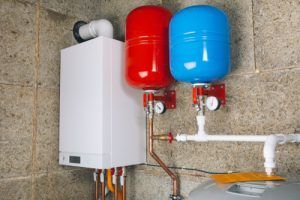Addressing the Most Frequent Hot Water Heater Emergencies
Addressing the Most Frequent Hot Water Heater Emergencies
Blog Article
In this article in the next paragraph you can discover a good deal of decent details about Warning Signs You Need Water Heater Repairs.

A water heater is just one of one of the most important fundamental home appliances that can be discovered in a residence. With hot water heater, you do not need to experience the tension of home heating water by hand each time there is a requirement to take a bath, wash, or the meals. There is constantly an opportunity that your water heater would certainly act up as with a lot of mechanical devices.
It is essential to keep in mind any type of little malfunction and also tackle it promptly before things leave hand. Many times, your water heater begins to malfunction when there is a build-up of debris as a result of continuous usage. As a safety measure, periodic flushing of your hot water heater is recommended to avoid debris accumulation and also prevent useful failure.
Typical hot water heater emergencies as well as just how to deal with them
Dripping hot water heater tank.
A leaking container could be an indicator of corrosion. It could trigger damages to the flooring, wall and also electrical tools around it. You could even be at danger of having your apartment or condo swamped. In this circumstance, you should switch off your water heater, allow it to cool, and meticulously search for the source of the problem. Sometimes, all you require to do is to tighten a few screws or pipeline connections in cases of minor leakages. If this doesn't function as well as the leak lingers, you might require to employ the solutions of a specialist for an appropriate substitute.
Fluctuating water temperature.
Your water heater can start generating water of various temperatures usually ice hot or cool warm. There may be a need to change either the heating or the thermostat system of your water heater.
Insufficient warm water
It might be that the water heating unit can't support the hot water need for your apartment. You could upgrade your water heating unit to one with a larger capacity.
Discolored or odiferous water
When this occurs, you need to know if the concern is from the storage tank or the water source. If there is no funny scent when you run cold water, after that you are specific that it is your water heating unit that is faulty. The stinky water can be triggered by corrosion or the accumulation of germs or debris in the water heater tank.
Final thought
Some homeowners disregard little caution as well as minor faults in their hot water heater unit. This only causes more damages and a feasible complete failure of your device. You must handle your hot water heater faults as soon as they come up to prevent even more costs and unneeded emergency troubles.
With water heaters, you don't require to go with the tension of heating water by hand every time there is a requirement to take a bath, do the washing, or the dishes. Your water heating system might start generating water of different temperature levels usually ice cool or scalding warm. It might be that the water heating unit can not support the warm water demand for your home. If there is no funny scent when you run cold water, after that you are certain that it is your water heating unit that is damaged. The stinky water can be triggered by rust or the build-up of microorganisms or sediments in the water heater container.
Common Water Heater Issues and What You Should Do
What Type of Water Heater Do You Have?
Before we begin it’s first important that you identify the type of water heater you have on your property. There are two main types of water heaters out there: conventional and high efficiency.
Both of these types of products typically use either gas or electricity to heat power. There are also solar water heaters that use a thermal collector on the roof or yard to heat the water.
While these models are not as common, they can cut heating costs in half. In this article, we will focus on conventional and high efficiency.
How Do My Electric and Gas Water Heater Work?
Though they look similar, electric and gas water heaters work very differently. It’s important to know their basic function because often problems can be specific to the heating source.
In the electric model, a thermostat on the side of the machine detects the temperature of the water in the tank. When the temperature needs to rise electricity flows to a heating element suspended in the water.
Gas models also use a thermostat device — typically with a mercury sensor at the tip and an additional sensor called a thermocouple. The thermocouple detects whether the pilot light is on and controls the flow of gas.
When the thermostat drops below the appropriate level gas is released which becomes ignited by the pilot light. The flame heats the bottom of the water tank which causes hot water to rise and cold water to drop.
This natural circulation continues until the water reaches the desired temperature. Then, the thermostat triggers the gas control valve to shut off the flow of gas.
What Are the Most Common Issues and How Do You Fix Them?
https://happyhiller.com/blog/common-water-heater-issues-and-what-you-should-do/

As a fervent person who reads about Common Hot Water Heater Problems, I imagined sharing that topic was sensible. Sharing is good. You just don't know, you might be helping someone out. I am grateful for your time. Visit us again soon.
Course Detail Report this page